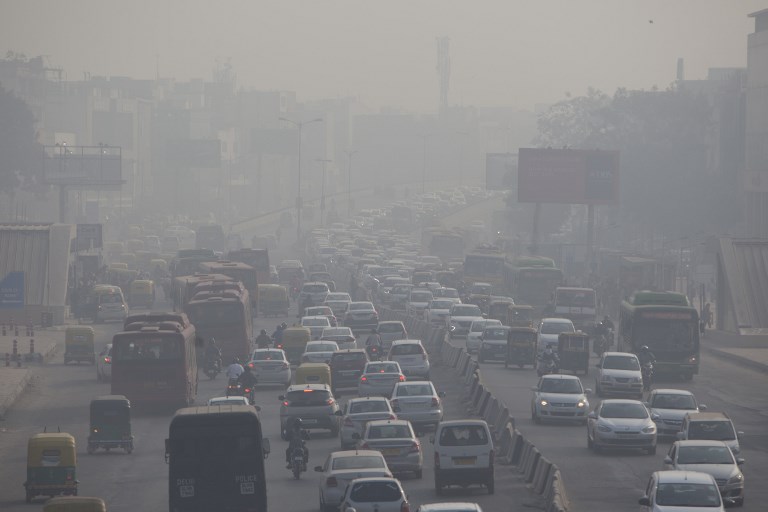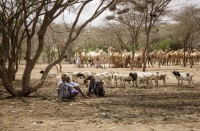
NEW DELHI, India (AFP) — India has launched a new campaign to improve air quality in more than 100 of its pollution-stricken cities, although an environment group said it lacked detail and the legal backing to ensure it is enforced.
Air quality in the country of more than 1.25 billion people has deteriorated to critical levels in recent years, with the capital New Delhi and 13 other Indian cities in the top 15 of a UN list of the world’s most polluted cities.
Environment Minister Harsh Vardhan said late Thursday the National Clean Air Programme (NCAP) will cover 102 cities and aim to cut levels of the most dangerous particles under 10 microns in diameter by 20 to 30 percent by 2024.
The particles are blamed for growing numbers of chronic bronchitis, lung cancer and heart disease in Indian cities.
The government has allotted three billion rupees ($42 million) to implement the plan which aims to plug the main pollution sources — industrial and traffic emissions, the mass burning of agricultural waste and construction — without setting out how this will be done.
Vardhan said only that the NCAP would carry out “comprehensive mitigation actions for prevention, control and abatement of air pollution.”
Environmental groups, who have long accused the government of dragging its feet in the battle against pollution, cautiously welcomed the announcement.
“The plan was long overdue and is a great step forward but we need to have clarity on targets and accountability,” Sunil Dahiya, senior campaigner for Greenpeace India, told AFP.
“We hoped it would be much stronger in providing sector wise targets, specific targets for cities and mention strong legal backing to take action for non-implementation.”
The initiative will also increase pollution monitoring and raise public awareness of the dangers.
India only has around 40 real-time pollution monitoring stations across the country, leaving huge blank spots where the population is unaware of any potential air pollution.
Toxic air was responsible for 1.24 million premature deaths in India in 2017 according to a study published last year in Lancet Planetary Health, which also said tens of millions of people face serious heath risks.
Delhi’s 20 million inhabitants suffer an annual blanket of poisonous smog in winter months when farmers in neighbouring regions burn rice and wheat stubble.
© Agence France-Presse







